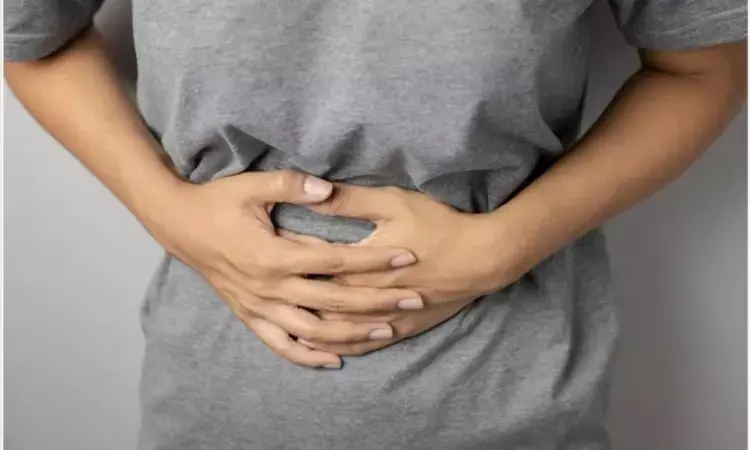- Home
- Medical news & Guidelines
- Anesthesiology
- Cardiology and CTVS
- Critical Care
- Dentistry
- Dermatology
- Diabetes and Endocrinology
- ENT
- Gastroenterology
- Medicine
- Nephrology
- Neurology
- Obstretics-Gynaecology
- Oncology
- Ophthalmology
- Orthopaedics
- Pediatrics-Neonatology
- Psychiatry
- Pulmonology
- Radiology
- Surgery
- Urology
- Laboratory Medicine
- Diet
- Nursing
- Paramedical
- Physiotherapy
- Health news
- Fact Check
- Bone Health Fact Check
- Brain Health Fact Check
- Cancer Related Fact Check
- Child Care Fact Check
- Dental and oral health fact check
- Diabetes and metabolic health fact check
- Diet and Nutrition Fact Check
- Eye and ENT Care Fact Check
- Fitness fact check
- Gut health fact check
- Heart health fact check
- Kidney health fact check
- Medical education fact check
- Men's health fact check
- Respiratory fact check
- Skin and hair care fact check
- Vaccine and Immunization fact check
- Women's health fact check
- AYUSH
- State News
- Andaman and Nicobar Islands
- Andhra Pradesh
- Arunachal Pradesh
- Assam
- Bihar
- Chandigarh
- Chattisgarh
- Dadra and Nagar Haveli
- Daman and Diu
- Delhi
- Goa
- Gujarat
- Haryana
- Himachal Pradesh
- Jammu & Kashmir
- Jharkhand
- Karnataka
- Kerala
- Ladakh
- Lakshadweep
- Madhya Pradesh
- Maharashtra
- Manipur
- Meghalaya
- Mizoram
- Nagaland
- Odisha
- Puducherry
- Punjab
- Rajasthan
- Sikkim
- Tamil Nadu
- Telangana
- Tripura
- Uttar Pradesh
- Uttrakhand
- West Bengal
- Medical Education
- Industry
Functional abdominal cramping pain: practical guidance by expert panel

Germany: A panel of experts on functional gastrointestinal disorders has released a practical guideline on the causes, diagnosis, and management of functional abdominal cramping pain.
"Functional abdominal cramping pain (FACP) is a regular complaint, that may either present on its own or in association with a functional gastrointestinal disorder," the document published in the Journal of Clinical Gastroenterology stated. "It is likely caused by a variety of, probably partly unknown, etiologies."
The authors further added that FACP's effective management can be challenging due to the dearth of usable diagnostic tools and the availability of a diverse range of treatment approaches. Practical guidance for their selection and use is limited. The guideline was developed with the objective to present a working definition of FACP based on expert consensus and proposing practical strategies for the diagnosis and management of this condition for physicians, pharmacists, and patients.
Statements and Recommendations are given below
Burden of FACP
- Health care professionals, including primary care physicians/general practitioners, specialists, and pharmacists, should be aware of FACP, the impact it can have on sufferers, and the management of symptoms.
Causes of FACP
- The causes of FACP in functional gastrointestinal disorders (FGID) are unclear but are probably multifactorial.
Diagnosis and Investigation of FACP in Primary Care
· The first step for evaluating FACP in primary care is to rule out "red flags" (alarm signals) of structural organic disease, which necessitate referral to a specialist.
· A detailed evaluation of family history, characteristics of pain, medication, and eating/bowel habits should be undertaken in all patients presenting to primary care with FACP symptoms.
· A physical examination (including bowel sounds and digital rectal examination), psychosocial assessment, and laboratory tests may also be appropriate in selected cases and at the discretion of the doctor. Abdominal ultrasound investigations may be helpful.
Clinical Management of FACP in Primary Care
• Mild, infrequent episodes of FACP may only require reassurance and advice (including avoidance of trigger foods), whereas more intensive and/or frequent episodes usually require therapeutic intervention.
• Many patients with FACP who present to primary care may require empirical treatment with an antispasmodic, the choice of which will depend on local availability and individual preference. If the first drug does not provide adequate symptom relief, it might be worthwhile to try an alternative antispasmodic.
• Patients who obtain little or no relief from their FACP with an antispasmodic may benefit from additional analgesia, for example, with acetaminophen (paracetamol).
• Patients with centrally mediated abdominal pain syndrome may respond to low doses of tricyclic antidepressants or selective serotonin reuptake inhibitors, or to the neuromodulator pregabalin.
• Relaxation training and targeted psychological interventions may be helpful adjunctive therapies for selected patients who suffer from stress and/or have preexisting psychiatric comorbidities.
Self-management of FACP
• Self-management of FACP using over-the-counter products is appropriate for many patients with mild, nonpersistent symptoms.
• To enable better self-care, patients and pharmacists require education and information on signs and symptoms to be aware of, and which treatments to use.
Reference:
Müller-Lissner, Stefan MD*; Andresen, Viola MD†; Corsetti, Maura MD, PhD‡,§; Bustos Fernández, Luis MD∥; Forestier, Sylvie MD¶; Pace, Fabio MD, PhD#; Valdovinos, Miguel A. MD**. Functional Abdominal Cramping Pain: Expert Practical Guidance. Journal of Clinical Gastroenterology: September 23, 2022 - Volume - Issue - 10.1097/MCG.0000000000001764 doi: 10.1097/MCG.0000000000001764
Dr Kamal Kant Kohli-MBBS, DTCD- a chest specialist with more than 30 years of practice and a flair for writing clinical articles, Dr Kamal Kant Kohli joined Medical Dialogues as a Chief Editor of Medical News. Besides writing articles, as an editor, he proofreads and verifies all the medical content published on Medical Dialogues including those coming from journals, studies,medical conferences,guidelines etc. Email: drkohli@medicaldialogues.in. Contact no. 011-43720751


